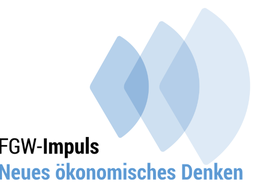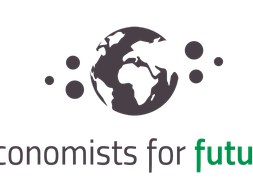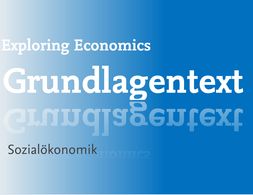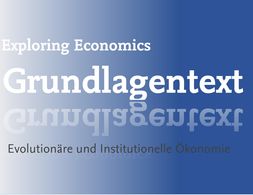389 Ergebnisse
Bastard Keynesianismus in einer doktrinenbezogenen Darstellung des Stoffes Eckhard Hein Quelle van Treeck Till and Janina Urban Wirtschaft neu denken Blinde Flecken in der Lehrbuchökonomie iRights Media 2016 Das Buch kann hier bestellt werden http irights media de publikationen wirtschaft neu denken Rezensiertes Buch Felderer B Homburg S 2005 Makroökonomik …
A review of:
[1] Intermediate Microeconomics, H.R. Varian
[2] Mikrooekonomie, R.S. Pindyck, D.L. Rubinfeld
[3] Grundzuege der mikrooekonomischen Theorie, J. Schumann, U. Meyer, W. Stroebele
Diese Webseite widmet sich der Vielfalt bestehender ökonomischer Theorien und Methoden. Orientiere Dich, vergleiche, entdecke und studiere die unterschiedlichen ökonomischen Perspektiven.
In this essay, the principle of capital accumulation, as well as the idea of homo economicus as the basis of the growth model, are located and analyzed from a feminist perspective. The sufficiency approach is presented as an alternative to these two economic logics.
Eine kritische Bestandsaufnahme des Lehrbuchs "Makroökonomie" von Oliver Blanchard und Gerhard Illing.
Was lässt sich basierend auf bereits existierenden Studien über den Status Quo der volkswirtschaftlichen Lehre aussagen?
Gegenstand der Studie ist eine vergleichende Bestandsaufnahme des aktuellen Profils und der zukünftigen Entwicklungstendenzen in der deutschen und US-amerikanischen Volks- wirtschaftslehre (VWL). Hintergrund ist die Frage nach einem deutschen Sonderweg in der Ökonomie. Hierfür werden die derzeit tätigen VWL-Universitätsprofessor_innen in Deutschland und den USA im Hinblick auf ihre thematische und inhaltliche Ausrichtung sowie auf ihr akademisches und außeruniversitäres Wirkungsspektrum untersucht.
Um der Klimakrise zu begegnen, müssen wir unsere Art zu wirtschaften radikal verändern. Ein großes Hindernis auf diesem Weg könnte die vorherrschende ökonomische Theorie sein. Denn der neoklassischen Wirtschaftswissenschaft ist es methodisch unmöglich, alternative Wirtschaftsformen abzubilden. Außerdem führt sie zu Politikempfehlungen, die systematisch die Möglichkeit einer Postwachstumswirtschaft ausblenden.
Shadow banking became one of the main features of modern market based financial capitalism and financial globalisation. Daniel Gabor locates this development in a Super-Cycle framework and sketches out opportunities to launch a new cycle that is green and just through financial regulation and publicly organised sustainable finance.
From the two premises that (1) economies are complex systems and (2) the accumulation of knowledge about reality is desirable, I derive the conclusion that pluralism with regard to economic research programs is a more viable position to hold than monism. To substantiate this claim an epistemological framework of how scholars study their objects of inquiry and relate their models to reality is discussed. Furthermore, it is argued that given the current institutions of our scientific system, economics self-organizes towards a state of scientific unity. Since such a state is epistemologically inferior to a state of plurality, critical intervention is desirable.
Die Sozialökonomik ist 1. die historische Fachbezeichnung einer integrierten Sozial- und Wirtschaftswissenschaft (vgl. Einzelwissenschaft, Disziplin) und 2. ein kontextabhängiger Ausdruck für komplexe Zusammenhänge von Gesellschaft und Wirtschaft (vgl. Sozialökonomie bzw. Sozioökonomie).
In der Auseinandersetzung um eine nachhaltige und lebenswerte Zukunft ist die Arbeitskritik eine unerlässliche Perspektive. Denn Arbeit basiert immer auf Ressourcen- und Energieverbrauch und hat somit immer direkte oder indirekte Umweltauswirkungen.
Die verfassungsrechtliche Anerkennung zukünftiger Generationen als Subjekte mit eigenen Rechten ist eine juristische Neuheit – und stellt unsere Gesellschaft vor Herausforderungen, für die es keine einfachen Lösungen gibt. Ein Beitrag von Carla Reemtsma.
Die Evolutionäre und Institutionelle Ökonomie ist ein ökonomisches Paradigma, in welchem sozialer und ökonomischer Wandel eine zentrale Bedeutung einnehmen. In dieser heterodoxen Rolle außerhalb des wirtschaftswissenschaftlichen Mainstreams sehen einige die Evolutionsökonomie als eine Teildisziplin der Wirtschaftswissenschaften, die sich mit dynamischen Aspekten wirtschaftlichen Austausches befasst; für andere stellt sie eine Revolution wirtschaftstheoretischen Denkens dar. (vgl. Berendt/Glückler: 13 f.) Die Institutionelle Ökonomie zeigt Erklärungsansätze für wirtschaftliche Prozesse auf und betont, dass diese nicht ausschließlich durch „individuelles Rationalverhalten“ geprägt werden. Die Notwendigkeit von Institutionen wird betont, da ein individuelles, rationales Verhalten zu einer negativen Beeinflussung der Gemeinschaft führen kann und somit die Lösung über Institutionen erfolgen muss. (vgl. Nee, 2005: 49 ff)
This course focus on the behaviour of individuals from an pluralist economic and an interdisciplinary bevavioural science apprach.
This course will fundamentally ask whether we can, or even should use the word ‘decolonising’ in our pursuit of a better economics?
Exploring Economics, an open-access e-learning platform, giving you the opportunity to discover & study a variety of economic theories, topics, and methods.
Based on a paper by Jason Hickel and Giorgos Kallis Decoupling refers to the separation of economic value creation material extraction and pollution. Ecological limits pose a challenge to growth-led development and the low historical and predicted rate of decoupling suggests that long-term sustainable growth-led development is impossible.
Capitalism is dissolving boundaries - not only in the sense of ever-expanding global trade flows, but also in the concrete everyday working lives of individuals. What implications does this have for our understanding of freedom, work and borders?
Neoclassical economics focuses on the allocation of scarce resources. Economic analysis is mainly concerned with determining the efficient allocation of resources in order to increase welfare.
Der Fokus der Verhaltensökonomik liegt auf dem beobachtbaren Verhalten von Menschen und deren Entscheidungen.
Der Fokus der Neoklassik liegt auf dem Umgang mit knappen Ressourcen. Analysen beschäftigen sich mit der effizienten Allokation von Ressourcen, um den Wohlstand zu vermehren.
Der Fokus der Institutionenökonomik liegt auf der Rolle von sozialen Institutionen, wie Verträgen, Gesetzen oder auch Verhaltensweisen, in der Produktion, der Verteilung und dem Konsum sowie auf den aus ihnen resultierenden sozialen Beziehungen.
Nach dem vorherrschenden Verständnis ist Geld vor allem eine sehr individualistische Sache. Doch wenn wir es als öffentliche Infrastruktur verstehen, bekommen wir auch ein anderes Bild von uns Menschen und unserem Zusammenleben. Ein Beitrag von Jakob Feinig.
Die Bioökonomie scheint eine elegante Lösung für die Klimakrise zu sein. Feministische Perspektiven zeigen jedoch, wodurch die Bioökonomie Unterdrückung und Ausbeutung (re)produziert – und wie sie stattdessen inklusiv und gerecht gestaltet werden kann.
Institutional economics focuses on the role of social institutions in terms of laws or contracts, but also those of social norms and patterns of human behaviour that are connected to the social organisation of production, distribution and consumption in the economy.
Die moderne Akademia bietet keine guten Rahmenbedingungen für gesellschaftskritische Transformationsforschung. Eine Reform sollte an vier Punkten ansetzen. Ein Beitrag von Stephan Pühringer und Carina Altreiter.
Who are the 86 laureates of the economics “Nobel prize”, and what are their scientific contributions? This course will present the major concepts, theories, and results in modern economics, through an overview of the work of a selection of economics “Nobel prize” as well as Leontief prize laureates.
This book introduces 40 critical pointers for those who wish to see the theory in a broader, more realistic context. The material is suitable for introductory and intermediate courses and can be included selectively by students for additional reading or in lectures or tutorials as discussion points. "Students of mainstream economics need a guide like this to help them understand the underlying assumptions, limitations and inbuilt biases of what they are studying. It helps them open their eyes to a broader view of how real economies work."
The third edition of Political Economy: The Contest of Economic Ideas is a fully updated overview of the political economy and its connection with social concerns. This book investigates the main traditions of economic ideas and provides a 'big picture' overview of the analytical tools and value judgements associated with competing schools of economic thought.
The volume, released by YSI’s Economic Development Working Group, comprises interviews with 13 scholars from around the world who express a variety of viewpoints on the meaning and relevance of dependency theory in today’s context.
Traditionally, economists have attributed consistency and rational calculation to the action of ‘economic man’. In a powerful challenge to orthodox thinking, Geoffrey Hodgson maintains that social institutions play a central and essential role in molding preferences and guiding action: institutions are regarded as enabling action rather than merely providing constraints.
Wir nutzen Cookies. Klicke auf "Akzeptieren" um uns dabei zu helfen, Exploring Economics immer besser zu machen!































